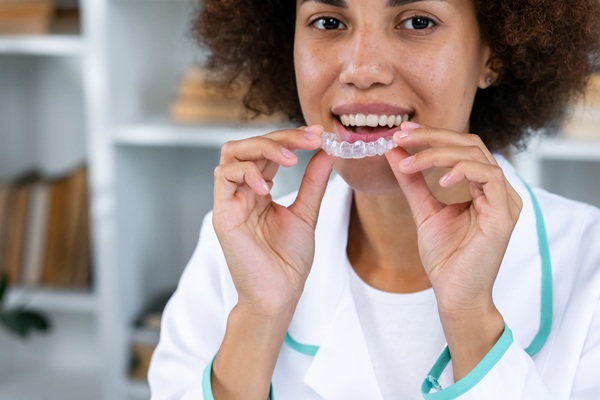Can Sedation Dentistry Help you Relax at the dentist?

If the thought of having to sit in a dentist’s chair makes your entire body tense and your palms sweaty, chances are that you are a good candidate for sedation dentistry. Some people may even choose to avoid the oral surgeon’s office altogether, enduring the agony of their current pain than undergoing a procedure that could eliminate it altogether.
Take a breath and relax
For those that cannot face the anxiety and pain, there is sedation dentistry. The methods of sedation dentistry can take away all traces of anxiety, relaxing patients into a dream-like state of painlessness. Essentially, sedation dentistry uses medication to sedate patients for a variety of dental procedures, whether one is undergoing a tooth implant or just simple teeth cleaning.
This type of dentistry is sometimes known as “sleep dentistry,” where patients receive sedation to a point of almost being put to sleep. During this state, they are usually aware of what is occurring to their body and their general well-being.
We will customize the treatment to your needs
However, not every patient has the same needs, nor does every dentist office use the same methods. There are a number of “levels” of dental sedation that oral surgeons and dentists use to put their patients at ease. These include:
Minimal sedation: the patient is awake but relaxed.
Moderate sedation: the patients may slur their words when speaking and not remember much of the procedure.
Deep sedation: the patient is on the edge of consciousness but can still be awakened.
General anesthesia: the patient is completely unconscious.
The following types of sedation are a common choice for oral surgeons and dentists:
Breathing nitrous oxide combined with oxygen
Also known as laughing gas, patients breathe this through a mask that is over their nose. The effects typically only last as long as the patient is breathing the gas. After we remove the mask, the patients will return to a normal mental state.
Oral sedation (In pill form)
While the pill will make the patient drowsy, they will still be in a waking state. The dosage will vary on how much sedation is necessary, as well when we administer the pill (either the night before or an hour before arriving at the office). This method is for moderate to extensive procedures, where a patient may need to remain still for a long period of time.
IV moderate sedation
This is where patients receive the sedative drug through a vein, which works more efficiently than just pills. This is due to the amount of sedation being adjustable during the procedure.
We can help you receive the oral health care you need
For instance, a patient may not fear the procedure itself, but have an innate sense of fear when it comes to local anesthetics by a needle. Others may have such anxiety that their body actively “fights” the procedure and needs dental sedation methods to offset those who have a low pain threshold, difficulty sitting still in the dentist's chair, have very sensitive teeth (or an aversion to those touching their mouth), a bad gag-reflex, or need a large amount of dental work completed.
Even further, some have a fear of going anywhere near an oral surgeon’s office altogether and need to be completely unconscious. Luckily, some methods of sedation dentistry have an amnesic effect on patients, where those who undergo these methods have no recollection of having work done–or even visiting the office altogether.
Request an appointment in our Benicia dentist office here: https://beniciadentist.com.
Recent Posts
Are you concerned about whether or not you will receive painless dentistry at your next appointment? You aren't alone. In fact, many people every year simply avoid the dentist altogether out of fear that they will have a painful experience. Unfortunately, for some people, they have already had a negative experience, so it's even more…
Sedation dentistry involves using medications to induce a state of extreme relaxation while you are having an oral procedure done. It does not make you unconscious, but it does significantly decrease your sensitivity to pain. It can also induce a state of short-term amnesia so that you have little memory of what happened during the…
Sedation dentistry makes going to the dentist less scary and intimidating. If you suffer from dental anxiety or maybe have a hard time sitting still, sedation dentistry might be just the trick to feeling confident while going to the dentist.This type of dentistry utilizes medication to help patients relax during the procedure. Unless the dentist…
Are you nervous or afraid of going to the dentist? If so, it is not something to be ashamed of because millions of people share the same concern.Fortunately, sedation dentistry can make the experience easier and help you conquer your fear of the dentist.Sedation dentistry significantly reduces your anxiety because your dentist will provide you…


